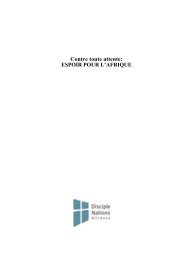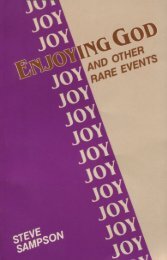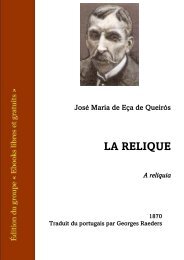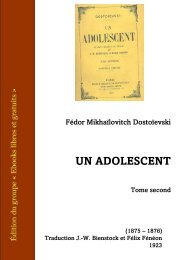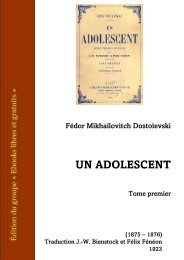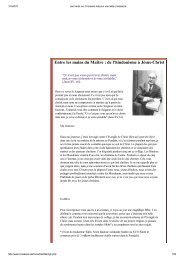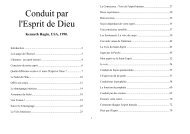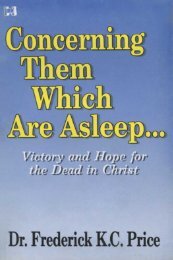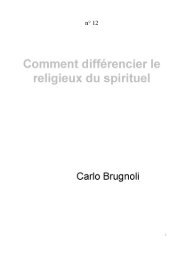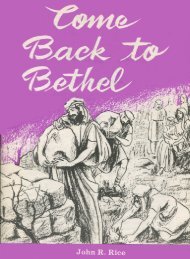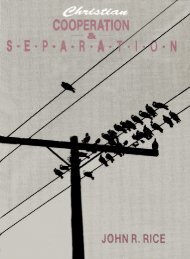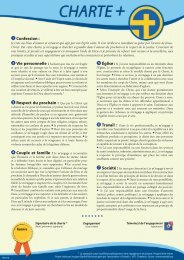341332
Create successful ePaper yourself
Turn your PDF publications into a flip-book with our unique Google optimized e-Paper software.
26 FATHERS, PASTORS AND KINGS<br />
church and which those seeking reform had attempted to formulate according<br />
to the perceived needs of the church. The value of the Council’s legislation lay<br />
in the fact that it gave official and codified form to what had formerly been a<br />
loose conglomerate of reform principles and proposals. Yet although it scored<br />
a decisive success in this, it did not prove nearly so comprehensive about other<br />
key aspects of episcopacy. Even during the Council’s deliberations, many<br />
deputies anticipated the potential risks of limiting its definitions on episcopacy,<br />
and they lost no energy in bringing this fact to their confreres’ notice. As a<br />
result, when the French delegation left its own country newly embroiled in a<br />
religious war, it arrived, in November 1562, at a Council that was itself in grave<br />
danger of escalating into a full-scale war of words, followed by a divisive and<br />
inconclusive termination of debate. This struggle hinged on the issue of episcopal<br />
droit divin, that is, on the source and the nature of bishops’ jurisdiction.<br />
It had been causing difficulties for quite some time; the question had first been<br />
broached in 1546 when the Council had discussed the duty of episcopal residence,<br />
and successive delegates had requested that residence be made a condition<br />
of divine law. Even after a great deal of intense debate in special<br />
committees and in the Council’s main sessions, no unanimous decision could<br />
be reached on whether a positive statement on the immediate source of bishops’<br />
jurisdiction should be included in the decrees on residence. The final<br />
decrees of Session VI had simply commanded, as a result, that bishops be resident<br />
within their dioceses, but made no reference to the broader issue of droit<br />
divin (divine law or right). 36<br />
One might ask why the rationale behind a bishop’s jurisdiction actually<br />
mattered so long as he exercised his diocesan authority vigilantly for the sake<br />
of reform. In reality, however, as the conciliar fathers were acutely aware, the<br />
issue of whether a bishop’s jurisdiction was held according to droit divin was<br />
open to two conflicting interpretations, both with grave implications for the<br />
functioning of authority and discipline and for the hierarchical structures<br />
underpinning the institutional church. The first argued that bishops received<br />
their power of jurisdiction directly or immediately from God and that this was<br />
an inalterable principle of divine law. Alternatively, and this was the position<br />
maintained by the papacy and its zelanti supporters, one could claim that<br />
prelates derived their power of jurisdiction directly or immediately from the<br />
pope, who alone held jurisdiction in plenitude, and that the droit divin of episcopal<br />
jurisdiction was consequently without foundation. 37 Each involved two<br />
distinct conceptions of ecclesiastical government, one papalist, the other more<br />
episcopalist, and, with such fundamental principles at stake, it was a quarrel<br />
that caused severe, and ultimately unresolved, difficulties at Trent.<br />
The traditional interpretation of the French role at Trent presents the<br />
stance of the French delegation as unrepentantly confrontational, with the




